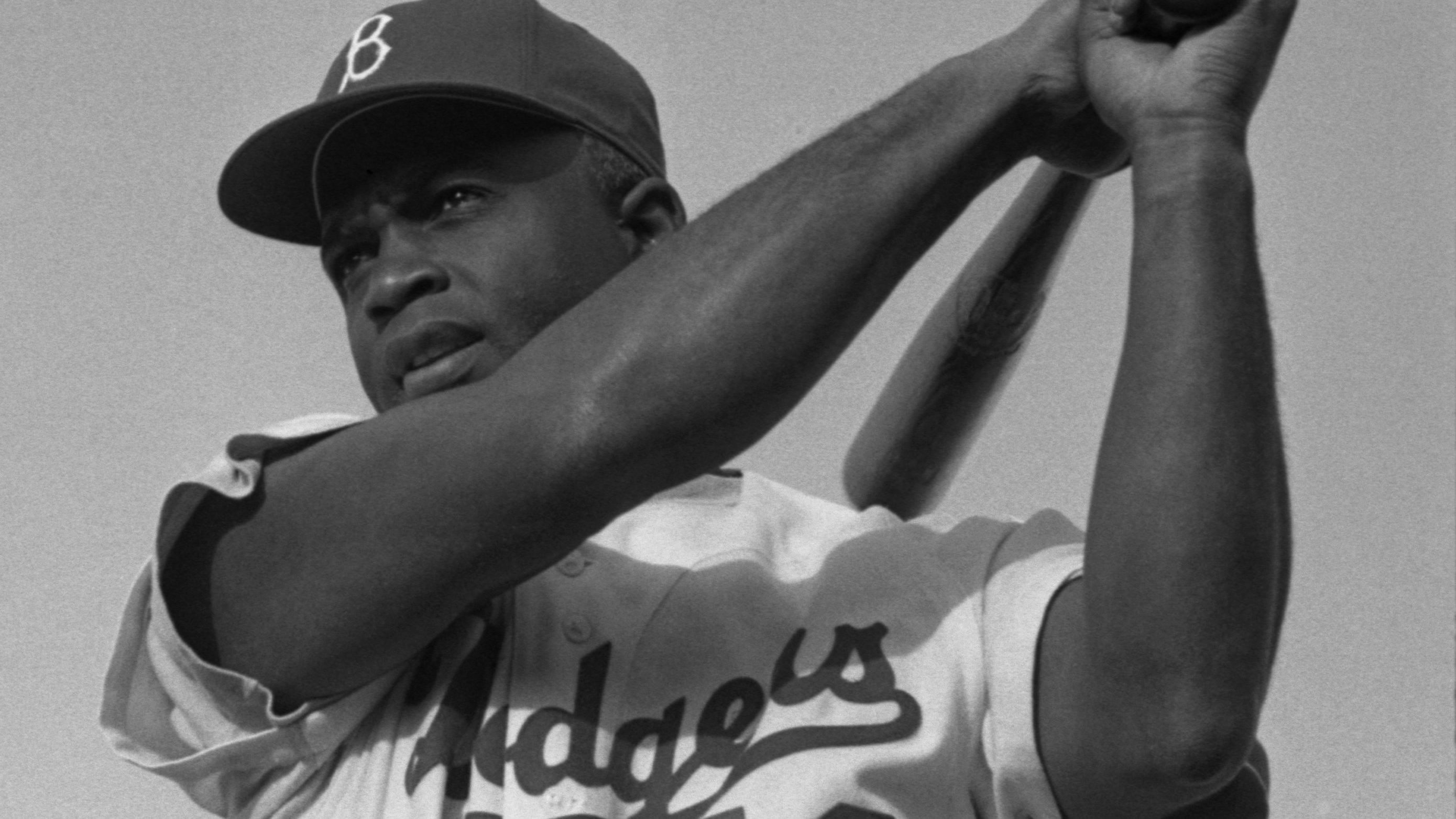Triggered by US President Donald Trump’s comments urging National Football League (NFL) owners to fire players who protest, athletes from different sports have defended their right to freedom of speech.
Team owners joined them in a consistent show of unity in what many have perceived as a disrespectful comment by the president.
The addition of statements by league leadership – owners, the NFL Commissioner and the first MLB player to join the protest – could mark a turning point in the ongoing activism seen in American sports.
In an era of political activism by athletes, the professional sports leagues themselves play a critical role in their support or silence on political issues.
Often instigated by players, the decisions these organizations make – in their support or punishment of player stances, the locations they choose for important events or the lack of any statement at all – often speak volumes about their willingness to engage in potentially controversial issues.
Often a reflection of how they see themselves within culture, the top three American sports leagues – the NFL, NBA, and Major League Baseball (MLB) have all taken very different positions on social activism.
NFL – a league with too much at stake
Among the big three American sports leagues, the NFL has been the most conflicted about its role in political issues.
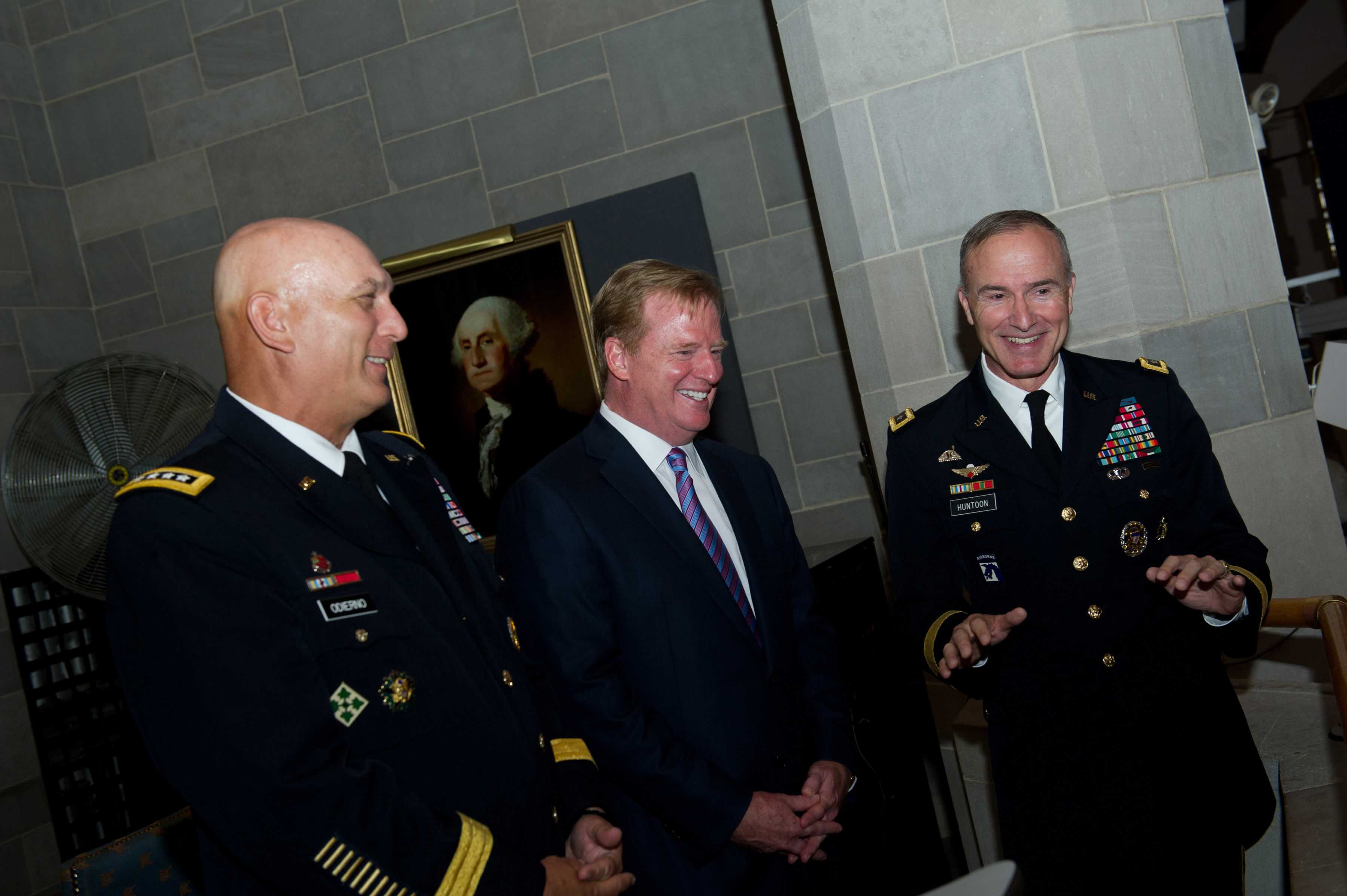
NFL Commissioner Roger Goodell has consistently defended players' right to free speech, however the NFL itself has not taken a stance on any issues. / SSG Teddy Wade [Public domain]
NFL Commissioner Roger Goodell has consistently defended players' right to free speech, however the NFL itself has not taken a stance on any issues. / SSG Teddy Wade [Public domain]
In the last few years the league has dealt with two reoccurring high-profile issues: racial inequality, which gained attention with quarterback Colin Kaepernick’s decision to kneel during the national anthem and has continued into this season by a handful of players; and domestic abuse, seen in a video of former running back Ray Rice punching his fiancé, and more recently accusations against running back Ezekiel Elliott for domestic violence against his former girlfriend.
While these issues have sparked polarizing opinions from fans – with US President Donald Trump going as far as to say that the NFL should fire players who don’t stand for the anthem – the NFL has done its best to distance itself from these issues.
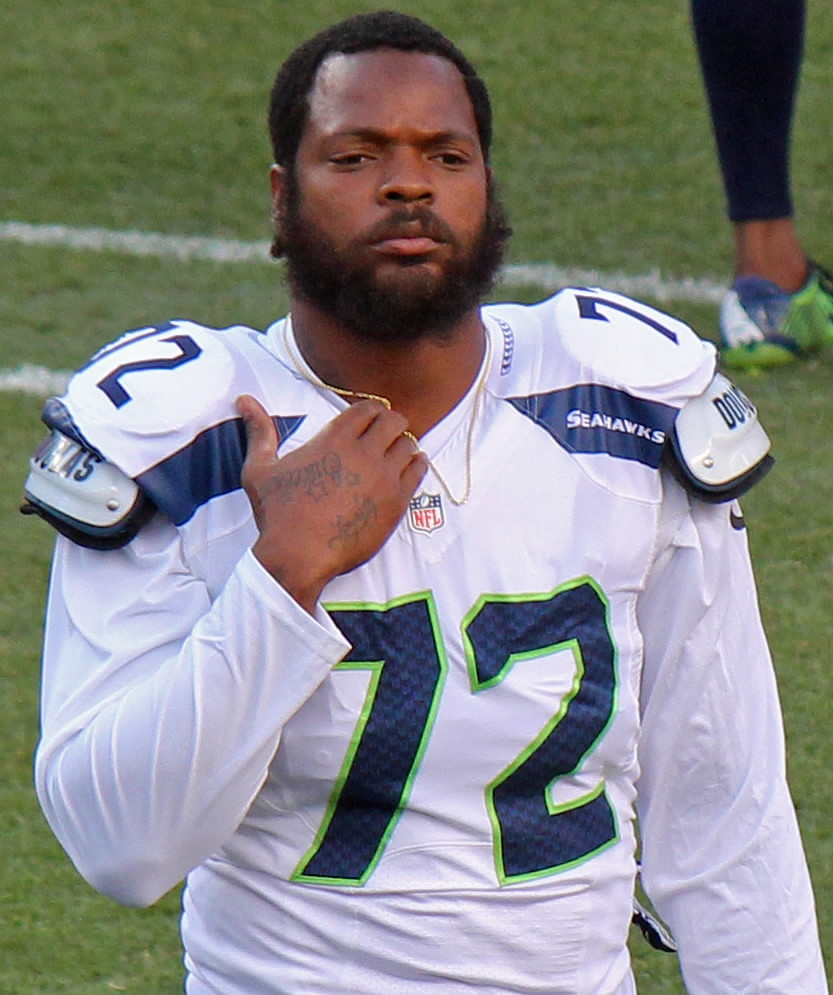
Seattle Seahawks defensive lineman Michael Bennett is among the handful of players protesting the national anthem this season. / Jeffrey Beall CC BY 3.0
Seattle Seahawks defensive lineman Michael Bennett is among the handful of players protesting the national anthem this season. / Jeffrey Beall CC BY 3.0
Outside of statements supporting players' rights to free speech, the league has consistently refused to make any statement or action that could be interpreted as putting a stake in the ground one way or the other.
In the case of domestic abuse, it has only recently started to enforce stronger penalties for players, after the public expressed outrage at measly two-game suspensions.
The lack of consistency by the league is partially due to how vulnerable it is financially. Unlike other sports, the NFL’s base is firmly in North America, even though it’s tried to attract fans overseas.
Despite being the most profitable sports league, raking in 14 billion US dollars last season, it is in a perilous position trying to balance advertisers, a primarily American fan base and TV contracts.
NBA – refusing to just stick to sports
Under the leadership of commissioner Adam Silver, the NBA has embraced a more expansive role in social issues. The league has consistently not just supported its players, but has taken action itself to effect change.
When the state of North Carolina passed a law removing anti-discrimination protections for lesbian, gay, bisexual and transgender people last year, the NBA protested by moving its annual All-Star game from North Carolina to Louisiana.
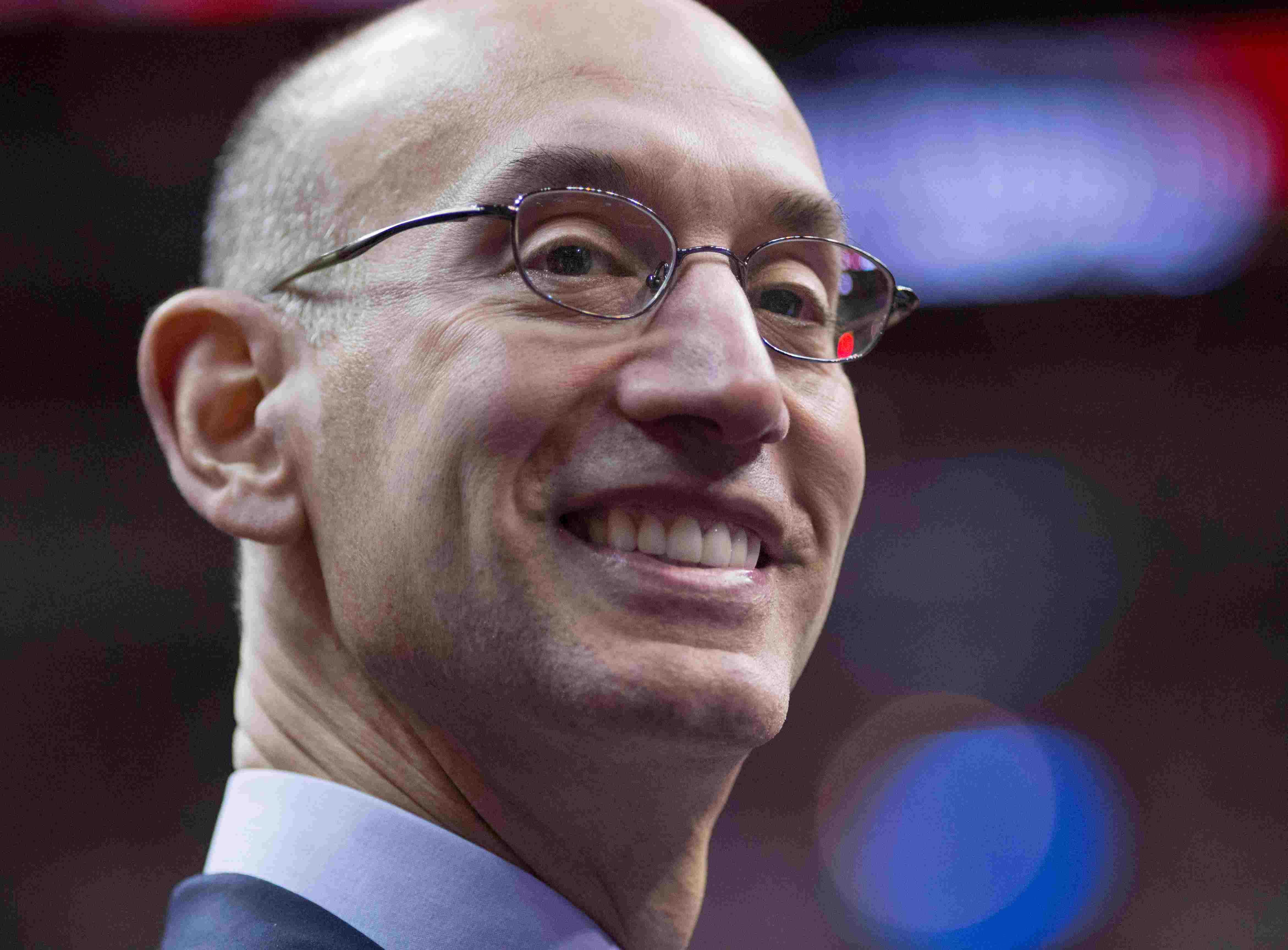
NBA Commissioner Adam Silver has embraced a more expansive role for the league. /Keith Allison CC BY-SA
NBA Commissioner Adam Silver has embraced a more expansive role for the league. /Keith Allison CC BY-SA
After a recording emerged of then-owner of the Los Angeles Clippers, Donald Sterling, admonishing his girlfriend not to bring her black friends to games, the NBA stepped in and banned Sterling for life.
The NBA has been unafraid to take a strong stance, and has supported its players in doing the same. Unlike other sports leagues, the NBA’s top players and coaches are front and center – LebBron James, Chris Paul and Dwyane Wade –have all protested police brutality.
While coaches Gregg Popovich, Steve Kerr and Stan van Gundy have all been vocal in their their views of President Trump.
MLB – political silence
On April 15, 1947, Jackie Robinson walked onto the baseball field to start at first-base for the Los Angeles Dodgers, becoming the first black man to play in major league baseball. Seventy years after that historic moment, the league that broke the color barrier is now staying tight-lipped on political issues.
On September 24, 2017, Pittsburgh Pirates catcher Bruce Maxwell became the first MLB player to break the silence, kneeling during the national anthem.
Among all three sports, baseball was founded in 1903 and has the longest history. Its players also stand in front of fans more frequently than the other sports, playing almost every day from April to October. For these reasons, baseball is an immensely powerful platform, making the league extra cautious when it comes to making any type of statement.
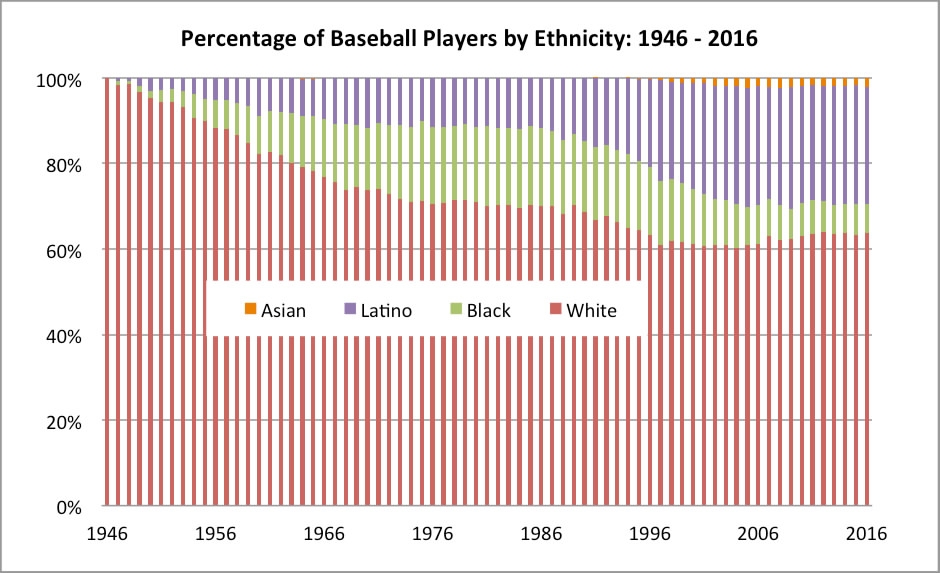
Among the three leagues, MLB has the lowest number of minority players, and none of the top stars are speaking out, making it difficult for others to follow suit. /Chart source: SABR
Among the three leagues, MLB has the lowest number of minority players, and none of the top stars are speaking out, making it difficult for others to follow suit. /Chart source: SABR
In a media training session earlier this year, New York Yankees General Manager Brian Cashman warned players of the risks that come with talking politics.
“The platform of the baseball player is a very powerful one. It's a free country, and you can always utilize that platform whenever you so choose. But just know, when you choose to do so, what the potential ramifications are," he warned.
The risks are indeed high in baseball. When the Chicago Cubs won the 2016 World Series for the first time in 100 years, city officials estimated that over 5 million people showed up, one of the largest human gatherings ever.
With baseball embedded in American culture, the sport has preferred to stick to the narrow focus of just playing sports. However, with the first protest by Maxwell, we might witness this once trailblazing sport begin to embrace its role in today’s political landscape.

